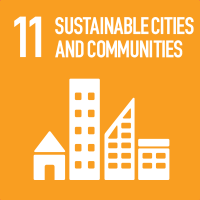Studying at the University of Verona
Here you can find information on the organisational aspects of the Programme, lecture timetables, learning activities and useful contact details for your time at the University, from enrolment to graduation.
Study Plan
The Study Plan includes all modules, teaching and learning activities that each student will need to undertake during their time at the University.
Please select your Study Plan based on your enrollment year.
1° Year
| Modules | Credits | TAF | SSD |
|---|
2° Year It will be activated in the A.Y. 2025/2026
| Modules | Credits | TAF | SSD |
|---|
| Modules | Credits | TAF | SSD |
|---|
| Modules | Credits | TAF | SSD |
|---|
| Modules | Credits | TAF | SSD |
|---|
1 module among the following2 modules among the following1 module among the following
- A.A. 2024/2025 Complex systems and social physics - Network science and econophysics - Statistical methods for business intelligence not activated
- A.A. 2025/26 Network science and econophysics not activated1 module among the following2 modules among the followingLegend | Type of training activity (TTA)
TAF (Type of Educational Activity) All courses and activities are classified into different types of educational activities, indicated by a letter.
Logistics, operations & supply chain (2024/2025)
Teaching code
4S009072
Academic staff
Coordinator
Credits
6
Also offered in courses:
- Logistics, operations & supply chain of the course Master's degree in Data Science
Language
English
Scientific Disciplinary Sector (SSD)
SECS-P/08 - MANAGEMENT
Period
Semester 1 dal Oct 1, 2024 al Jan 31, 2025.
Courses Single
Authorized
Learning objectives
The course provides a consistent knowledge of the activities and processes of logistics concerning the following operations: supply management, inventory and warehouse management, production planning and demand planning, distribution and service to the customer. The course also aims to deepen the tools that allow to achieve customer satisfaction, from a business to business and business to consumer perspective, integrating the activities of planning, implementation and control of logistics with the efficient and effective management of customer service . At the end of the course the student has to show to have acquired the following skills:
- knowledge of the main characteristics of the following topics: Logistics management, warehousing and inventory management; global customer service and LSA (Logistics and Service Agreements); demand planning; supply chain strategy (lean-agile); transportation management; e-commerce, distribution management and retail
- ability to understand and develop outsourcing and process optimization solutions.
- ability to develop solutions aimed at customer satisfaction (BtB and BtC)
- ability to integrate planning and organization activities in the logistics sector
Prerequisites and basic notions
The prerequisite is knowledge of the fundamentals of management and data analysis
Program
The course will describe the main data science’s approaches and tools on the key themes of logistics management, operations management and supply chain management, in particular:
Logistics management
Supply chain management and network design
Warehousing and inventory management
Demand planning and management
Production strategy
Transportation management and optimization
Distribution management and retail management
Outsourcing and process optimization
Global customer service and LSA (Logistics and Service Agreements);
Service and E-commerce
An assignment is finally proposed to students as additional work during the course, that will offer extra points for the exam.
Bibliography
Didactic methods
The Course is structured in lessons (using slides), working groups and case studies. A lecturer, prof. Trilce Encarnation, from the UMSL (USA) will participate in the course. She will offer her lessons in streaming, that can be attended either from home or in-class. Managers from companies will provide their practical insights on the key themes of the course.
The lessons, as well as the related exams, take place in person. In particular, the importance of participating in classroom activities is underlined in order to benefit from interaction with teachers and participation in project work activities, presentations and group work.
Furthermore, as a further service to students, the lessons are also expected to be video-recorded. The video recordings are available in the teaching e-learning space for the entire academic year. However, it is underlined that the recordings do not represent a substitute for the lessons and activities carried out in the classroom.
Learning assessment procedures
The final exam is written and includes theoretical open questions and multiple-choice questions.
There are extra assignments, that are not mandatory, based on the projects that will be presented in class.
The student will study on the slides and materials provided by the professors. The reference book is: Christopher Martin, "Logistics and Supply Chain Management", 5th ed., Pearson.
Evaluation criteria
The assessment is based on the verification of: 1) the knowledge of the theoretical topics addressed during the lessons and of the texts under study; 2) the ability to apply theoretical concepts to the practical cases studied.
Criteria for the composition of the final grade
The final grade is based on the sum of the final exam grade and the evaluation of an (opitional) project work, which will be assigned during the course.
The project work consists of the development of a business case and adds a maximum of 3 points to the final grade.
Exam language
english



